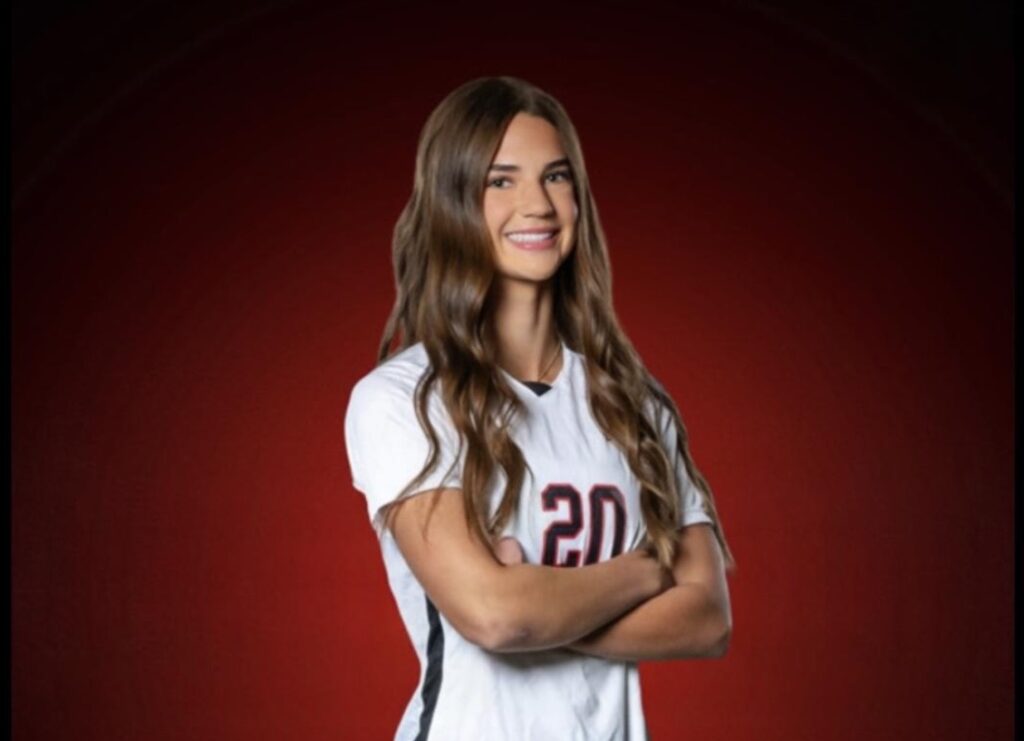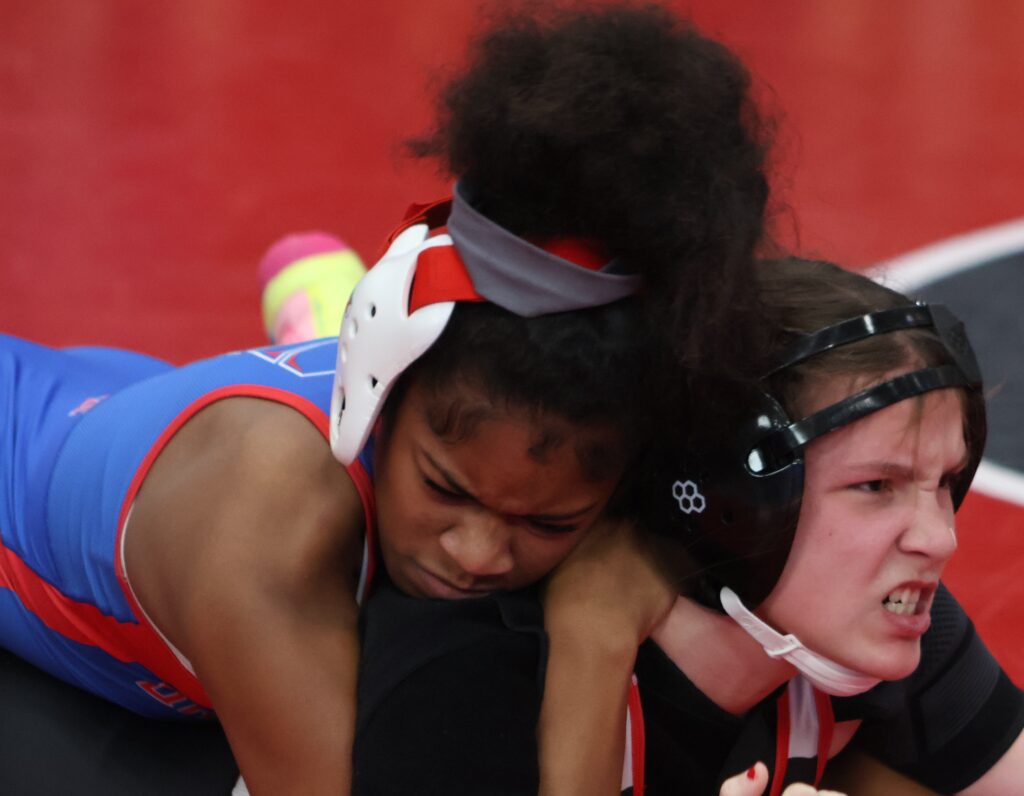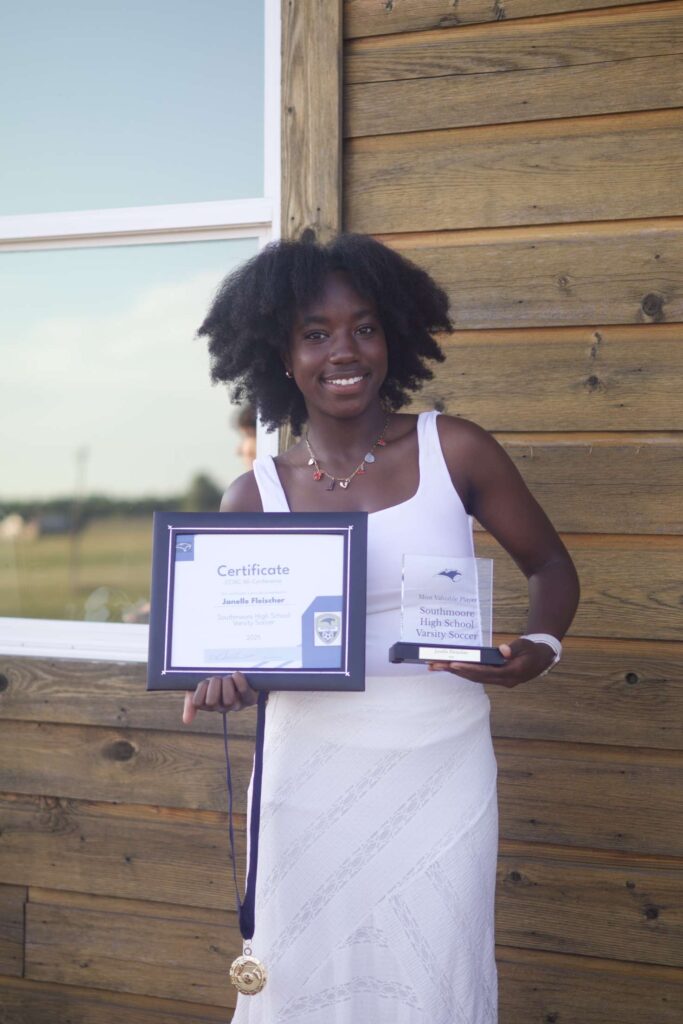
By Chris Dietrich
VYPE: What got you interested in track?
Zane Ogle: My interest in track came from my interest in cross country, which is closely linked. They are the same sport because they involve similar activities. However, my decision to join the track team also came from a need for consistency. I needed something in my life that was hard. It might sound strange to some, but challenges help you grow, and I wanted something that would push me.
Being part of the track team also introduced me to a great community. When you go through something difficult with others, it builds strong connections. This is especially true for long-distance running, which I compete in. Everything in long-distance is mental. Of course, you have to train physically, but mental endurance plays a significant role. Sometimes, imagining a teammate running beside me helps me push further than I thought possible.
VYPE: What events do you compete in?
ZO: In track, I am considered a “mid-D” (middle-distance) runner, which includes races ranging from 800 meters (two laps around the track) to a mile (four laps). I primarily focus on the 800 meters.
VYPE: What determines the events you compete in?
ZO: Event selection depends on factors like body physique and endurance. Coaches provide guidance, but athletes also have a say in what they compete in. For example, a runner initially joined the long-distance track without prior cross-country experience. It was tough for him at first, but over time, the coaches realized he had more speed than endurance. He eventually transitioned to sprints, where he excelled. However, his time in long-distance training still benefits him, as he now has more incredible stamina than most other sprinters.
VYPE: How do you balance track with your coursework at Moore Norman Technology Center?
ZO: Moore Norman is very self-paced. The course I’m enrolled in is online, and while the teacher provides instruction, much of the work can be done outside of class. It all comes down to time management and compartmentalization.
I structure my work by determining how much I need to complete each day and spacing it out. Running is also very structured, especially with a coach assigning workouts. I finish my training early to focus on the rest of my day.
VYPE: What sparked your interest in cybersecurity?
ZO: Honestly, part of it was the financial stability. But beyond that, I spent a lot of time in robotics and engineering, and I discovered that I gravitated toward cybersecurity-related tasks.
While my work isn’t strictly coding, I genuinely enjoy learning about it, which is something I haven’t experienced with other subjects. Finding something you want, that also provides good career opportunities is rare.
VYPE: What excites you about cybersecurity?
ZO: Even though I view a job as just a job, I hold cybersecurity in higher regard because I enjoy it. One of the biggest appeals is its diversity—you can work anywhere globally. Cybersecurity constantly evolves, making it a field where you learn and grow.
VYPE: What does a typical day look like for you?
ZO: During the school week, everything is structured. However, weekends are more flexible, and I usually run later in the day. Distance runners aim for an aerobic base, so we run around 30–32 miles weekly.
VYPE: What happens if you don’t meet that mileage?
ZO: The coaches won’t hold your hand. There are about 140 kids on the cross-country team, and they can’t micromanage everyone. If you fall behind, it’s on you. They only help those who put in the effort. Self-discipline is essential, especially for long-distance runners.
VYPE: Are you currently involved in any cybersecurity competitions?
ZO: Yes! I’m competing in Business Professionals of America (BPA). Each school can only send five students for specific tests, and I was one of them. I passed my cybersecurity test and qualified for Oklahoma State. Out of everyone in Oklahoma, only 12 students qualified, and I’ll compete in state-level events in two weeks.
VYPE: How do you manage the pressure of balancing athletics and academics?
ZO: A big part of it is self-discipline, but I’m human—plenty of days I don’t want to train. My teammates keep me accountable. Whether it’s not wanting to let them down or just imagining them running beside me, they help me push through.
Academically, high standards have always been a part of my life. I have reduced my workload of more challenging classes to make room for track, but I love the sport too much to give it up. My parents are supportive since I’m doing well at Moore Norman, and they know I’ll be certified for a job straight out of high school.
It’s about knowing what you value and staying consistent.











